Ukraine
See all articles tagged with ukraine and discover more interesting topics!
Sestry.eu | Kim's troops against Ukraine: can North Korea's involvement influence the course of the war?
More info 23. 10. 2024 at 14:10
23. 10. 2024 at 14:10
North Korea entered the war against Ukraine on Russia's side. Kiev expects an appropriate response from its partners. According to President Volodymyr Zelenskyj, there is evidence that not only workers but also military personnel are heading to Russia from North Korea. EUROPEUM Associate Research Fellow Tereza Novotná commented on the situation for Sestry.eu.
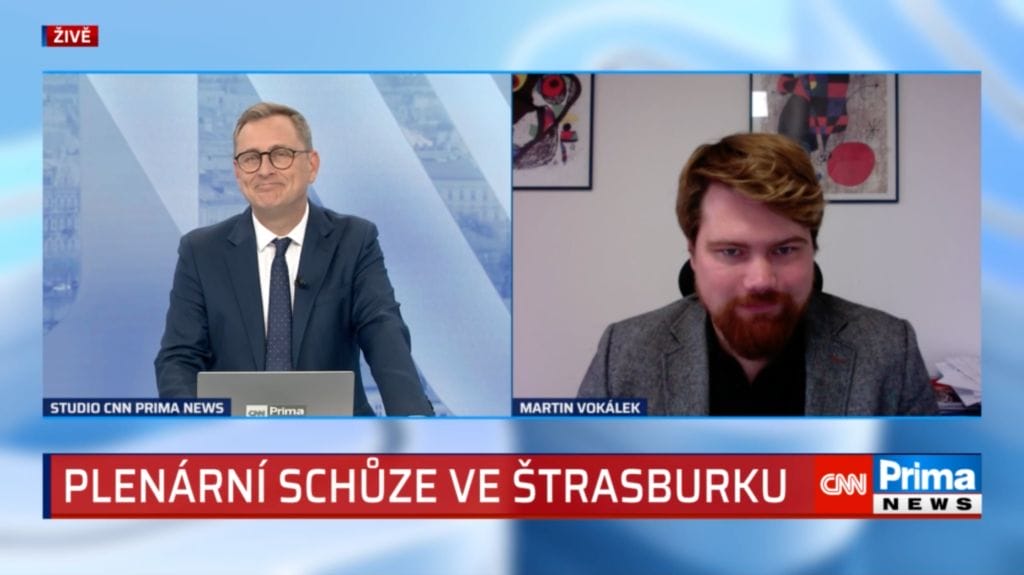
CNN Prima News | Plenary meeting in Strasbourg to decide on budget and loan to Ukraine
More info 22. 10. 2024 at 13:35
22. 10. 2024 at 13:35
MEPs in Strasbourg will vote on a loan of up to 900 billion crowns to Ukraine. This should be covered by the proceeds from frozen Russian assets. Other topics to be discussed include the EU's draft budget for next year and the situation in Lebanon. Martin Vokálek, executive director of EUROPEUM Institute, commented for CNN Prima News.
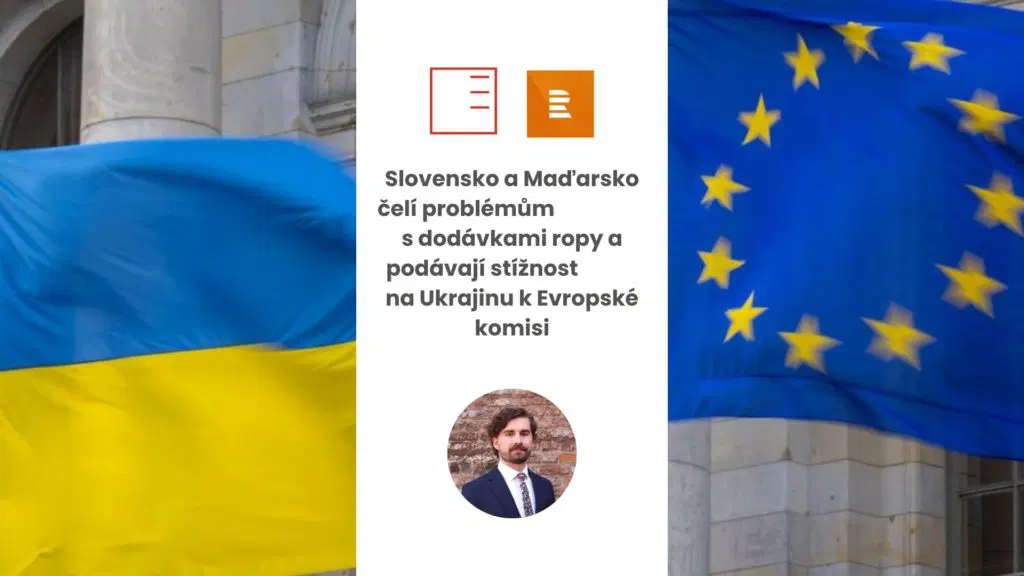
ČRo Plus | Slovakia and Hungary face oil supply issues and file a complaint against Ukraine with the European Commission
More info 24. 7. 2024 at 08:35
24. 7. 2024 at 08:35
Russian oil from Lukoil still isn’t flowing through Ukraine to Slovakia and Hungary. In June, Ukraine unilaterally decided to ban the transit of Lukoil oil through its territory, as the company was added to its sanctions list. Slovakia and Hungary have turned to the European Commission for help in resolving the issue. What can the EU do about this situation? What role does the Association Agreement with Ukraine play in resolving this dispute? Viktor Daněk, Deputy Director of EUROPEUM Institute, comments on the situation.
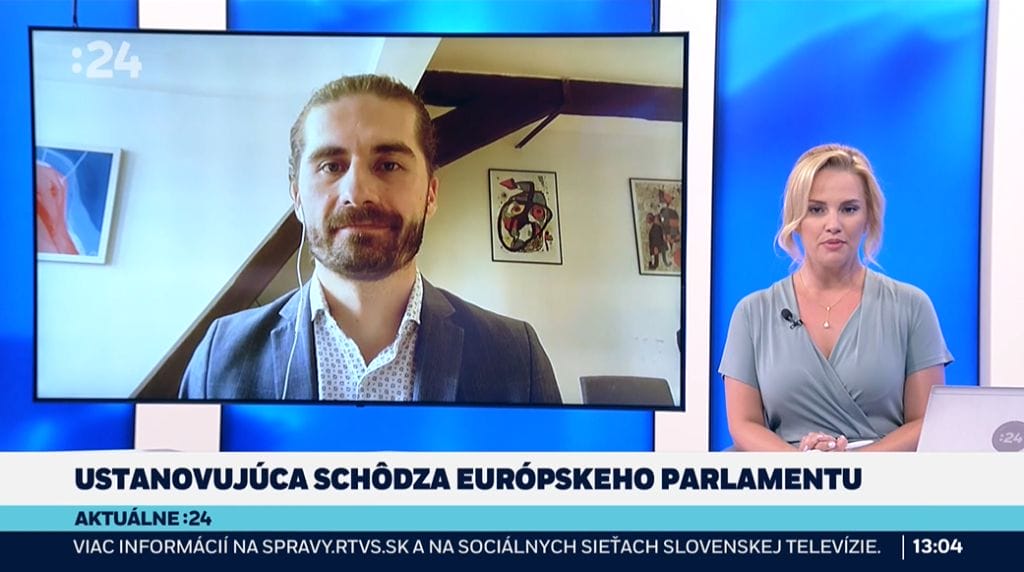
STVR | Constituent meeting of the European Parliament
More info 17. 7. 2024 at 11:00
17. 7. 2024 at 11:00
Members of the European Parliament continue to assign themselves to various committees, familiarize with the agendas assigned to them, and have already started working. At the constituent meeting, the first discussion was on a new legislative proposal concerning Ukraine, during which MEPs expressed continued support for the country. Viktor Daněk, Deputy Director of the EUROPEUM Institute, commented for Slovakian STVR.
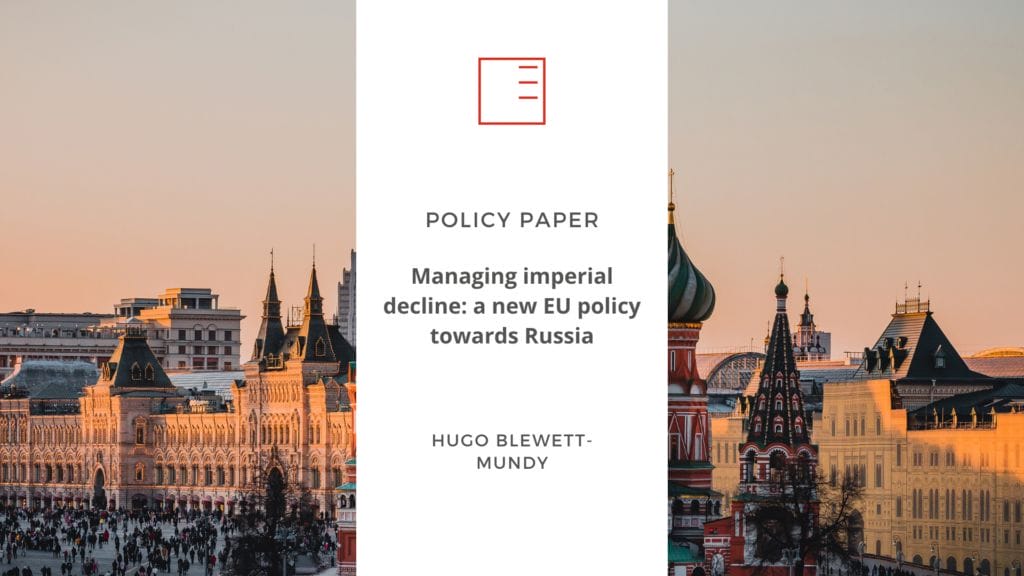
Policy paper | Managing imperial decline: a new EU policy towards Russia
More info 16. 7. 2024 at 15:10
16. 7. 2024 at 15:10
Russia's full-scale invasion of Ukraine in February 2022 has shattered the post-Cold War international order built upon East-West interdependence and cooperation. The European Union (EU) - which had tried to pursue a strategic relationship with Russia after the collapse of the Soviet Union in 1991 - must now adapt to the geopolitical reality of Russian neo-revisionism. Hugo Blewett-Mundy, an Associate Research Fellow at EUROPEUM Institute, identifies four areas where the EU's policy towards Russia could evolve to confront this emerging security situation in Europe.
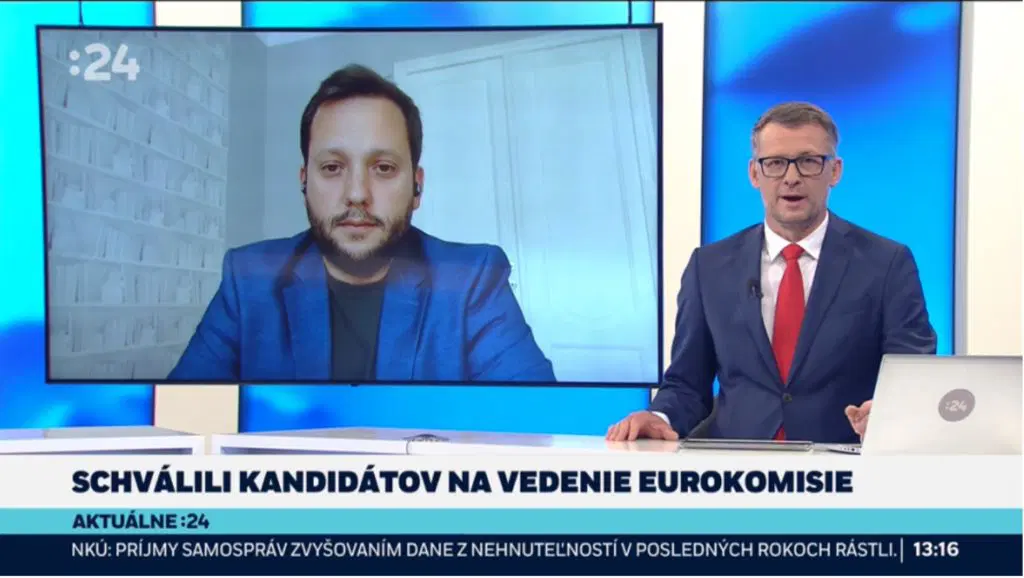
RTVS | EU and Ukraine have concluded a comprehensive security agreement in Brussels
More info 28. 6. 2024 at 14:30
28. 6. 2024 at 14:30
The European Union and Ukraine concluded a comprehensive security agreement in Brussels. This builds upon the EU's longstanding support for Ukraine. What did the politicians agree upon? What is new in the new treaty? Žiga Faktor, Deputy Director and Head of the Brussels Office at the EUROPEUM Institute, commented for the Slovak RTVS.
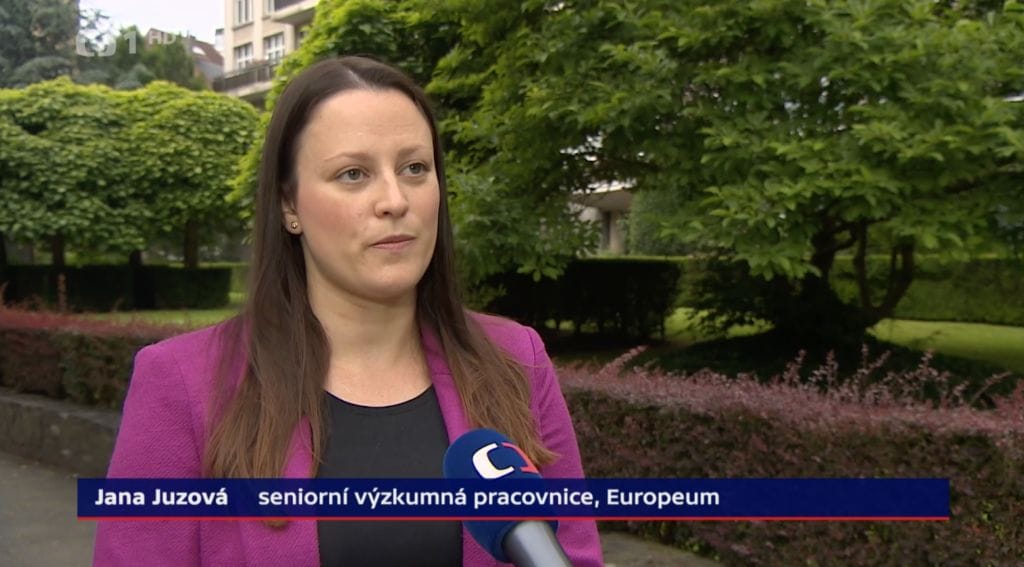
Události ČT | Accession talks between Ukraine and Moldova and the EU
More info 25. 6. 2024 at 19:30
25. 6. 2024 at 19:30
The European Union has initiated accession talks with Ukraine and Moldova. This decision was preceded by two years of negotiations. The accession process is expected to take several years. Jana Juzová, a senior researcher at the EUROPEUM Institute, commented on the topic for Evening News on Czech Television.
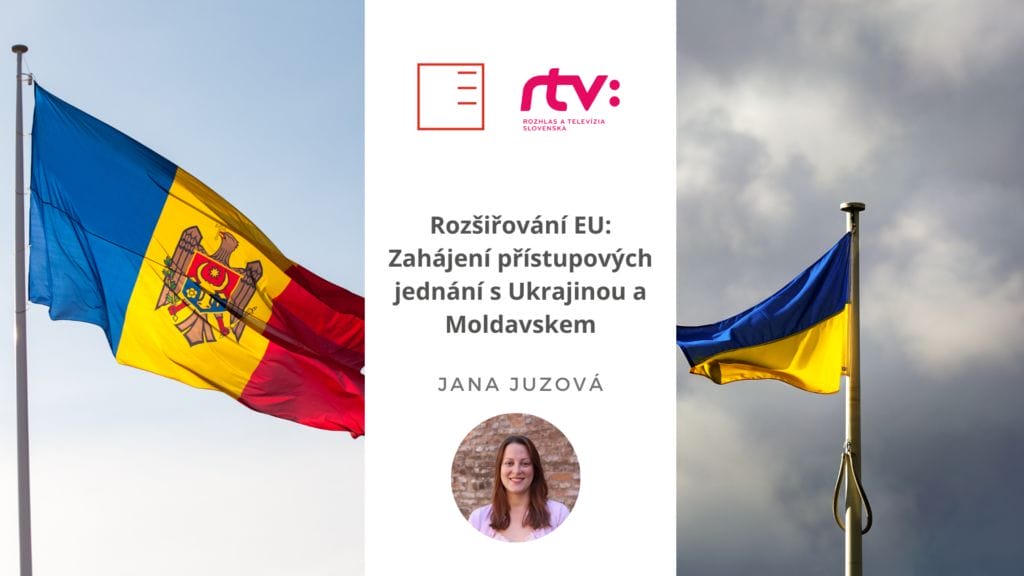
RTVS | EU Enlargement: Initiation of Accession Negotiations with Ukraine and Moldova
More info 25. 6. 2024 at 14:30
25. 6. 2024 at 14:30
The European Union has initiated accession negotiations with Ukraine and Moldova. What does this mean for its inhabitants? How do the accession talks proceed? And what must the countries fulfill? Jana Juzová, a senior researcher at EUROPEUM Institute, comments for Slovak RTVS Television.
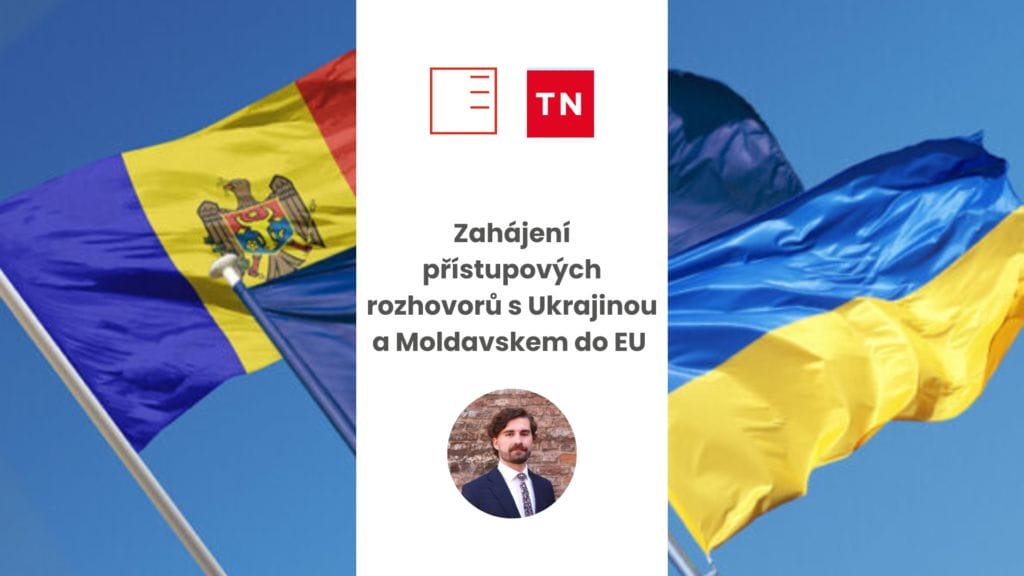
TN.cz | Ukraine and Moldova begin EU membership talks
More info 25. 6. 2024 at 10:40
25. 6. 2024 at 10:40
In Luxembourg, formal accession negotiations with Ukraine and Moldova to the European Union have begun. Is this a significant progress towards their eventual EU membership? Which of these two countries has a stronger position? And how does the screening process unfold? Viktor Daněk, Deputy Director of EUROPEUM Institute, discussed these topics for TN.cz.

The Parliament Magazine | From military support to EU membership: What the new European Parliament means for Ukraine
More info 19. 6. 2024 at 12:00
19. 6. 2024 at 12:00
The results of the European elections are favorable for Ukraine; the center-right European People's Party (EPP) won the most seats, thereby strengthening the position of European Commission President Ursula von der Leyen, a strong supporter of Ukraine. On the other hand, while some groups to the right of the EPP also had successes, their support for Ukraine is mixed. Žiga Faktor, Deputy Director and Head of the Brussels Office of EUROPEUM Institute, commented the situation for The Parliament magazine.
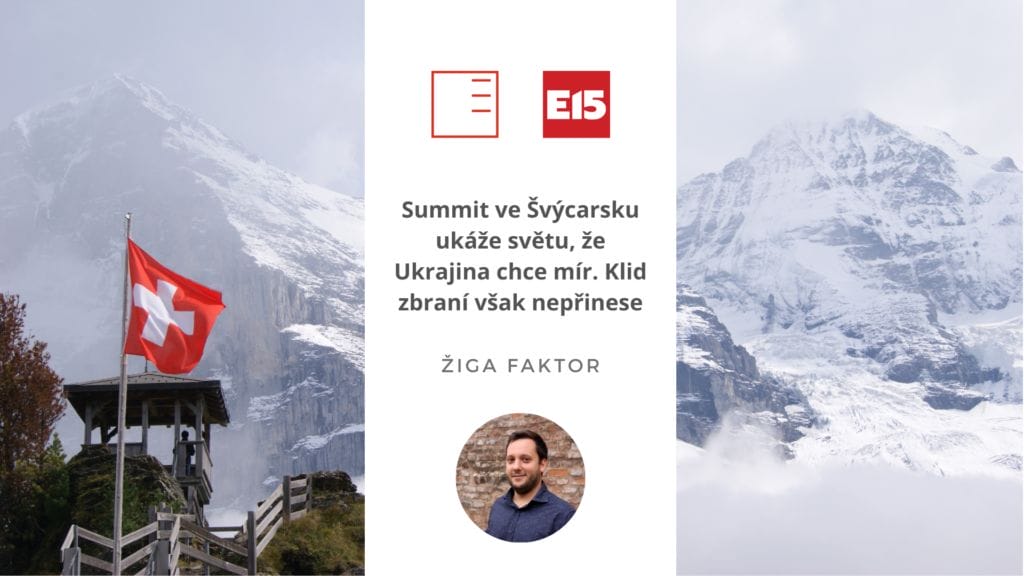
e15 | Summit in Switzerland will show the world that Ukraine wants peace. But it will not bring it
More info 14. 6. 2024 at 10:40
14. 6. 2024 at 10:40
The luxury Alpine hotel Bürgenstock on the shores of Lake Lucerne in Switzerland will host the largest peace conference on Ukraine to date this coming weekend. Leaders and diplomats from nearly 90 countries will be there to seek ways to end the worst armed conflict in Europe since the Second World War. The ambitious event has been accompanied by criticism over the non-participation of Russia, China and US President Joe Biden. Even so, experts say the summit could be an important first step towards peace. Žiga Faktor, deputy director and head of the Brussels office of EUROPEUM Institute, describes the possibilities the conference will offer for e15 journal.
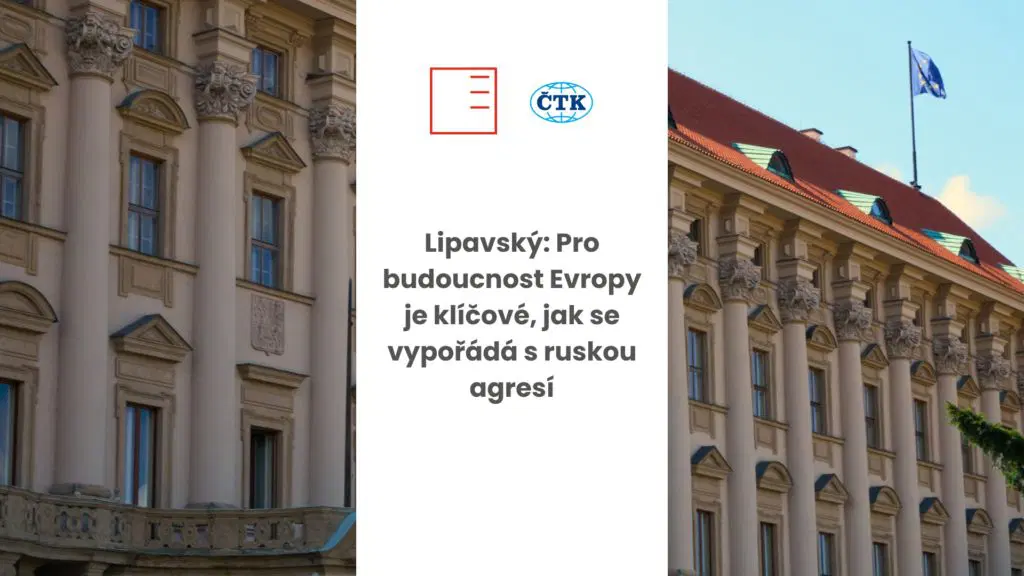
ČTK | Lipavský: Dealing with Russian aggression is key for the future of Europe
More info 13. 6. 2024 at 10:15
13. 6. 2024 at 10:15
According to Minister of Foreign Affairs Jan Lipavský, it is crucial for the future of Europe how it deals with Russia's brutal aggression towards Ukraine and its increasingly aggressive stance towards the West. He also emphasized that it will be essential for the European Union to ambitiously strengthen its role as a global player in the coming period, including prompt action in the development of the defense industry. He presented this vision in his speech at the Prague European Summit co-organized by EUROPEUM Institute and the Institute of International Relations.